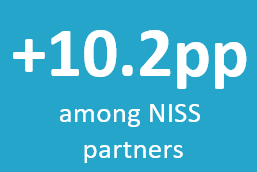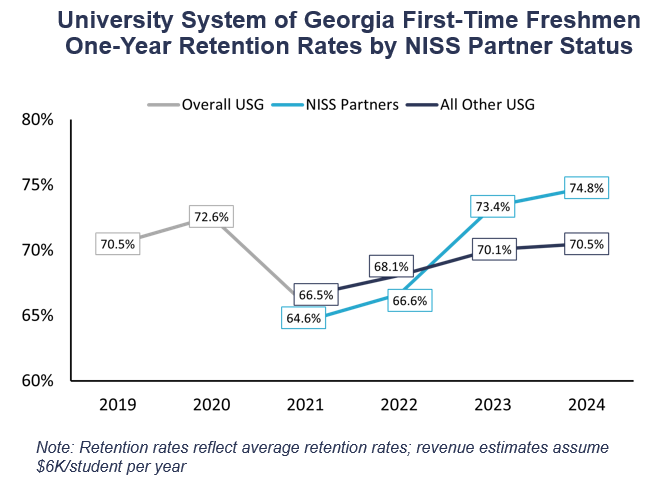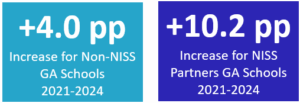Are We The Problem?
3.6
million students who enrolled in college in 2018 who will not graduate.
36%
of students wished they had chosen a different major.
$32k
drop in annual earnings for individuals who do not complete a college degree.
18
national percentage point gap between Pell and non-Pell students who graduate in six years.
20%
share of admitted students who never enroll in college due to administrative barriers.
25%
average failure rates in first-year math courses.
47
point drop in graduation rates for students who have to stop out of college for financial reasons.
30%
drop in likelihood that a student will graduate if they still have not found a major/career after two years of college.
5.1
years it takes the average student to complete a 4-year degree.
Evidence-based, data-driven strategies for Student Success
The NISS provides partner institutions with in-depth diagnostic analyses, implementation support, and learning pathways that enable significant improvements in retention and college completion rates.
Evidence-based Programs
Practical know-how developed by subject matter experts who have successfully implemented such programs on their own campuses.
Student Success Gap Reduction
Innovative and proven approaches for large-scale, positive transformation for students from all backgrounds.
Data Driven Student Support
Better outcomes in the enrollment, retention, and graduation of students from all backgrounds through the implementation of data-informed practices
Predictive Analytics
Holistic data analysis that identifies and addresses institutionally-created completion barriers.

Success by the Numbers
Georgia State is nationally known for pioneering student success programs that have improved college completion rates for all students.
Drop in summer melt.
Increase in undergraduate degrees awarded annually.
Students tracked daily for analytics-based alerts.
Completion grant recipients who graduate each year.
Reduction in withdrawals from students with a balance when using a Chatbot.
Increase in undergraduate degrees awarded to Hispanic students.
Increase in retention rate for students in Success Academy.
Majors and programs mapped to career outcomes.

“The lessons learned by Georgia State are transferable. The NISS disseminates evidence-based best practices to other colleges and universities and provides a suite of services to support their successful implementation.”
Dr. Tim Renick, NISS Executive Director
News & Insights
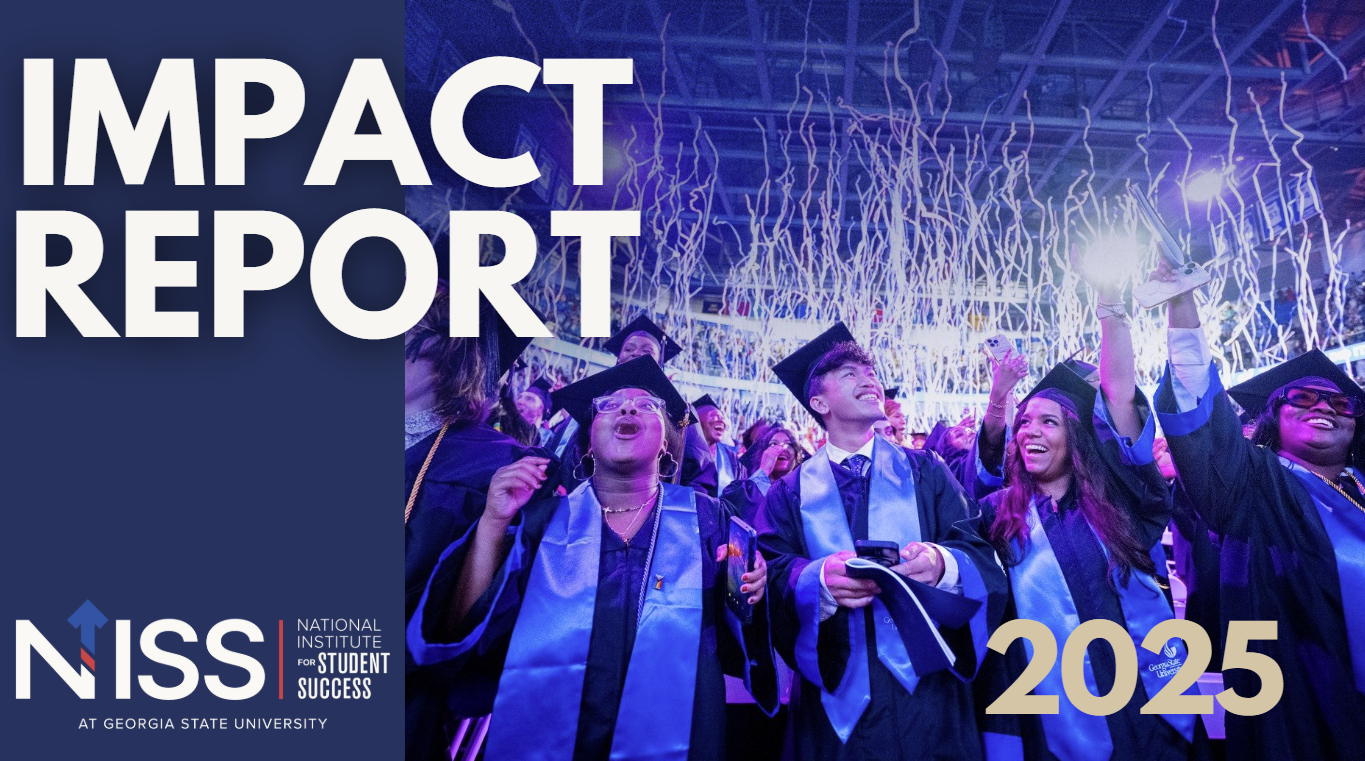
National Institute for Student Success
Jan 14, 2026 · 30 minutes
NISS Releases 2025 Impact Report Highlighting Record Growth and Student Success Gains
The National Institute for Student Success (NISS) has released its 2025 Impact…
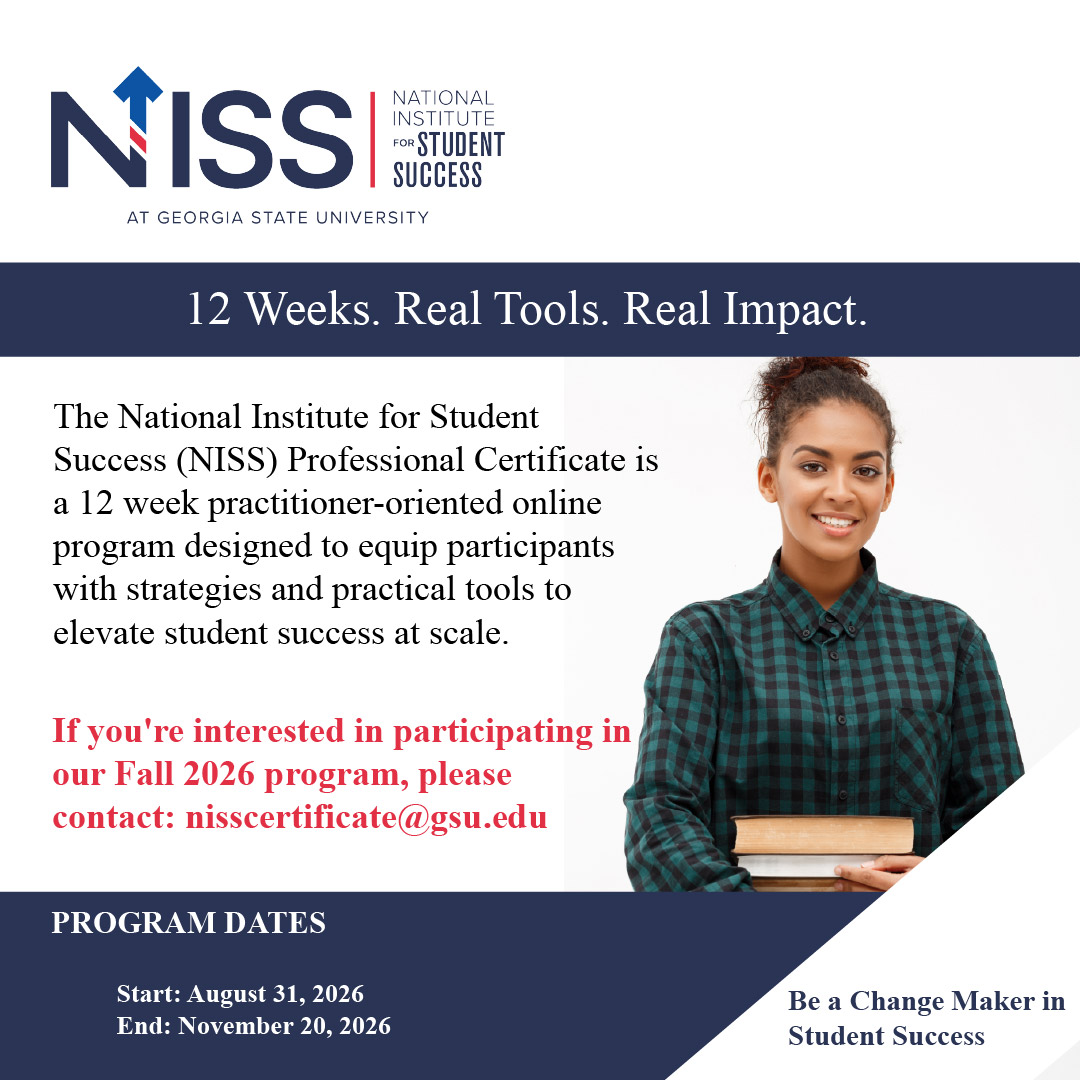
National Institute for Student Success
Dec 9, 2025
The NISS Launches New Professional Certificate in Student Success
The NISS is pleased to announce the launch of the new Professional…

PRMC
Oct 8, 2025 · 2 minutes
Georgia State Celebrates Opening of Its New Student Success Center, Home to the National Institute for Student Success
Georgia State University marked the opening of its Student Success Center on…









